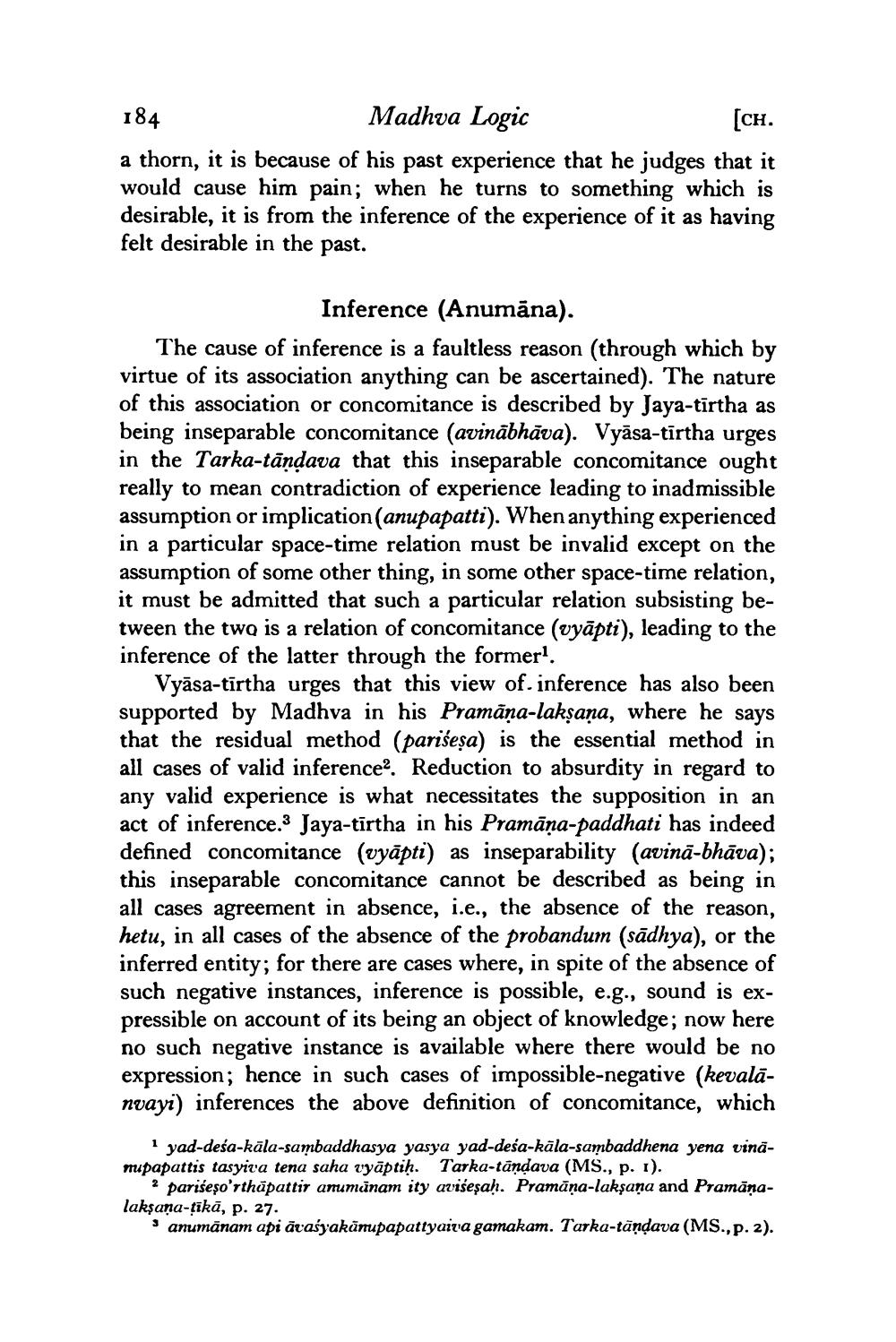________________
184 Madhva Logic
[CH. a thorn, it is because of his past experience that he judges that it would cause him pain; when he turns to something which is desirable, it is from the inference of the experience of it as having felt desirable in the past.
Inference (Anumāna). The cause of inference is a faultless reason (through which by virtue of its association anything can be ascertained). The nature of this association or concomitance is described by Jaya-tīrtha as being inseparable concomitance (avinābhāva). Vyāsa-tīrtha urges in the Tarka-tāndava that this inseparable concomitance ought really to mean contradiction of experience leading to inadmissible assumption or implication(anupapatti). When anything experienced in a particular space-time relation must be invalid except on the assumption of some other thing, in some other space-time relation, it must be admitted that such a particular relation subsisting between the two is a relation of concomitance (vyāpti), leading to the inference of the latter through the former'.
Vyāsa-tīrtha urges that this view of inference has also been supported by Madhva in his Pramāņa-lakṣaṇa, where he says that the residual method (pariseșa) is the essential method in all cases of valid inference?. Reduction to absurdity in regard to any valid experience is what necessitates the supposition in an act of inference.3 Jaya-tīrtha in his Pramāna-paddhati has indeed defined concomitance (vyāpti) as inseparability (avinā-bhāva); this inseparable concomitance cannot be described as being in all cases agreement in absence, i.e., the absence of the reason, hetu, in all cases of the absence of the probandum (sādhya), or the inferred entity; for there are cases where, in spite of the absence of such negative instances, inference is possible, e.g., sound is expressible on account of its being an object of knowledge; now here no such negative instance is available where there would be no expression; hence in such cases of impossible-negative (kevalanvayi) inferences the above definition of concomitance, which
1 yad-deśa-kāla-sambaddhasya yasya yad-deśa-kāla-sambaddhena yena vinamupapattis tasyita tena saha vyāptiḥ. Tarka-tandava (MS., p. I).
? pariseşo'rthāpattir arumānam ity aviseşaḥ. Pramāņa-laksana and Pramānalaksaņa-tikā, p. 27.
. anumānam api āraśyakūnupapattyaita gamakam. Tarka-tāndava (MS., p. 2).




